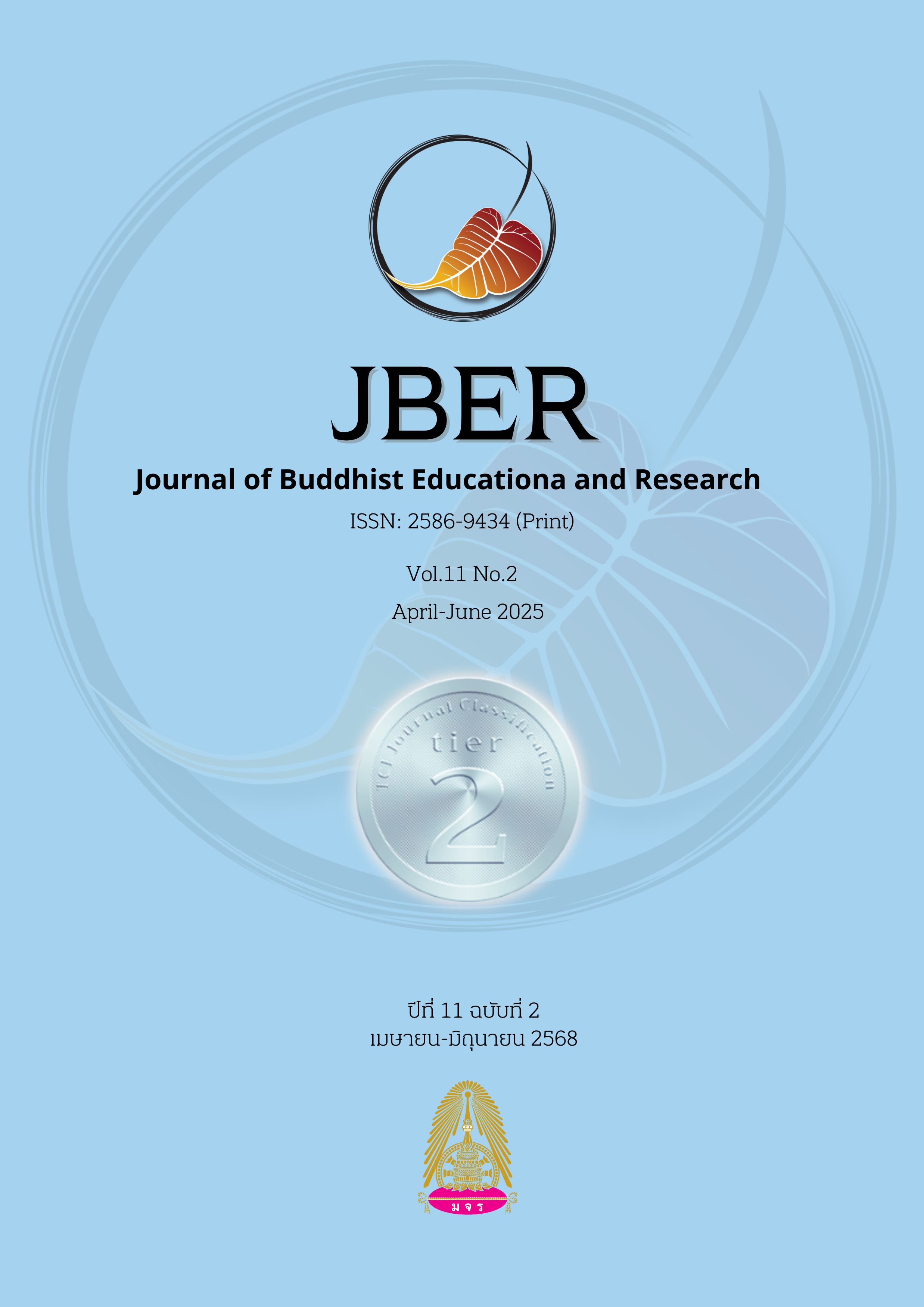Good Governance in Thailand’s Durian Exportation
Keywords:
Governance, Durian exportation, Entrepreneur, Durian WarehouseAbstract
This research analyzes the problems of governance in Thailand's durian exports and proposes guidelines for developing good practice standards and fair-trade policies. Data was collected through in-depth interviews with durian packing house operators and related agencies, using a purposive sampling method with a total of 12 participants, including 8 durian export business operators and 4 representatives from pertinent agricultural policy agencies. The findings indicated that the durian export sector in Thailand is subject to unjust trade practices, which include production control and bulk purchasing, grading and price control, complex regulatory systems, misrepresentation of durians from neighboring countries, and interventions by gray-market investors. Durian pricing, transportation and inspection systems, quality control to ensure compliance with standards, chemical residue and immature durian inspections, and clear pre-harvest and export regulations within the country are all critical components of best practice standards for durian exportation in Thailand. The research recommends the implementation of quality control measures for exported durians, market expansion and diversification, financial assistance for business operators, support for infrastructure and logistics systems, and collaborative development of durian exports between the government and the private sector to implement fair trade policies for Thailand's agricultural sector in durian exports.
References
กระทรวงเกษตรและสหกรณ์, สำนักวิจัยเศรษฐกิจการเกษตร. (2563). การศึกษาบทบาทของผู้ประกอบการธุรกิจผลไม้ที่มีต่อทุเรียนไทย. กรุงเทพฯ: ผู้แต่ง.
ธนิต โสรัตน์. (2550). การประยุกต์โลจิสติกส์และโซ่อุปทาน. กรุงเทพฯ: วี-เซิร์ฟ โลจิสติกส์.
นิพนธ์ วิสารทานนท์. (2542). โรคทุเรียน. กรุงเทพฯ: ห้างหุ้นส่วนจำกัด เอ พลัส ทรี มีเดียม.
สำนักงานนโยบายและยุทธศาสตร์การค้า. (2562). ทุเรียน ราชาแห่งผลไม้ไทย ถูกใจคนต่างแดน. สืบค้นจาก http://www.tpso.moc.go.th/sites/default/files/thueriiyn_240863.pdf
สถาบันพระปกเกล้า. (2556). ธรรมาภิบาล. สืบค้นจาก https://goodgovernance.kpi.ac.th/home/mainpage/2
สุดารัตน์ ศรีจันทร์, ทรงคุณ จันทจร, & กิตติกรณ์ บำรุงบุญ. (2565). ภูมิปัญญาทุเรียนจันทบุรี: เศรษฐกิจสร้างสรรค์เพื่อการส่งออก. วารสารสหวิทยาการวิจัยและวิชาการ, 2(5), 325–344.
หิรัญ หิรัญประดิษฐ์. (ม.ป.ป.). ประวัติทุเรียนในประเทศไทย. สืบค้นจาก https://www.kingpandurian.com/experience/ประวัติทุเรียนในประเทศไทย
วงธรรม สรณะ. (2564). เศรษฐศาสตร์การเมืองว่าด้วยการค้าทุเรียน: กรณีศึกษาการค้าของพ่อค้าคนกลางในจังหวัดจันทบุรี. วารสารวิจัยวิชาการ, 4(4), 167–178.
Ahearne, A., Nunes, J., & van der Woude, M. (2004). Trade barriers: Their impact and future trends. OECD Economic Studies.
Chamberlin, E. H. (1933). The theory of monopolistic competition. Harvard University Press.
Gusztav, N. (2005). Integrated rural development: The concept and its operation. Budapest: Economics Hungarian Academy of Sciences.
Helpman, E., & Krugman, P. (1985). Market structure and international trade. MIT Press.
Hotelling, H. (1929). Stability in competition. The Economic Journal, 39(153), 41–57.
Irwin, D. A. (2002). Free trade under fire. Princeton University Press.
Krugman, P. R., & Obstfeld, M. (2009). International economics: Theory and policy (9th ed.). Pearson.
Lancaster, K. J. (1990). Intra-industry trade under perfect monopolistic competition. Journal of International Economics, 29(1–2), 131–145.
McDonald, M. (2002). Marketing plans: How to prepare them, how to use them (5th ed.). Singapore: Butterworth-Heinemann.
Porter, M. E. (1998). The competitive advantage: Creating and sustaining superior performance. NY: Free Press.
Rodrik, D. (1997). Has globalization gone too far. Challenge, 41(2), 81–94.
Stiglitz, J. E. (2002). Globalization and its discontents. W. W. Norton & Company.
Downloads
Published
How to Cite
Issue
Section
Categories
License
Copyright (c) 2025 Journal of Buddhist Education and Research (JBER)

This work is licensed under a Creative Commons Attribution-NonCommercial-NoDerivatives 4.0 International License.





